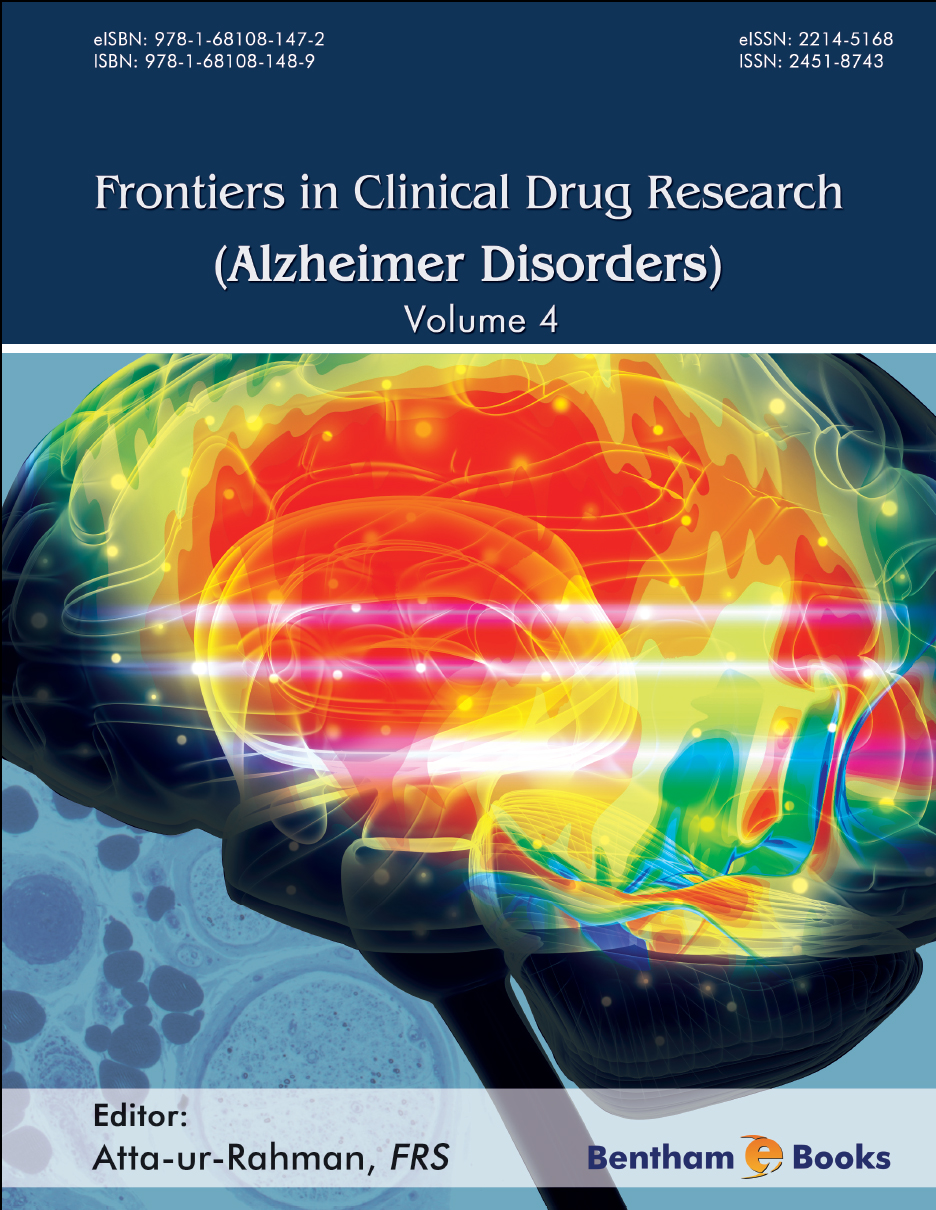Introduction
Frontiers in Clinical Drug Research - Alzheimer Disorders is an e-Book series concerned with Alzheimer's disease (AD) that causes dementia, or loss of brain function. The disease affects the parts of the brain that deal with memory, thought, and language. Chapters in each volume focus on (Alzheimer Disorders) drug research with special emphasis on clinical trials, research on drugs in advanced stages of development and cure for Alzheimer’s disease and related disorders.
Frontiers in Clinical Drug Research - Alzheimer Disorders will be of particular interest to readers interested in drug therapy of this specific neurodegenerative condition and related brain disorders as the series provides relevant reviews written by experts in field of Alzheimer’s Disease research.
The fourth volume of this series features research on
- Melatoninergic Pathways in Alzheimer's disease,
- Nutritional Approaches in Alzheimer’s disease prevention,
- Updates on drugs and strategies for Alzheimer’s disease prevention

